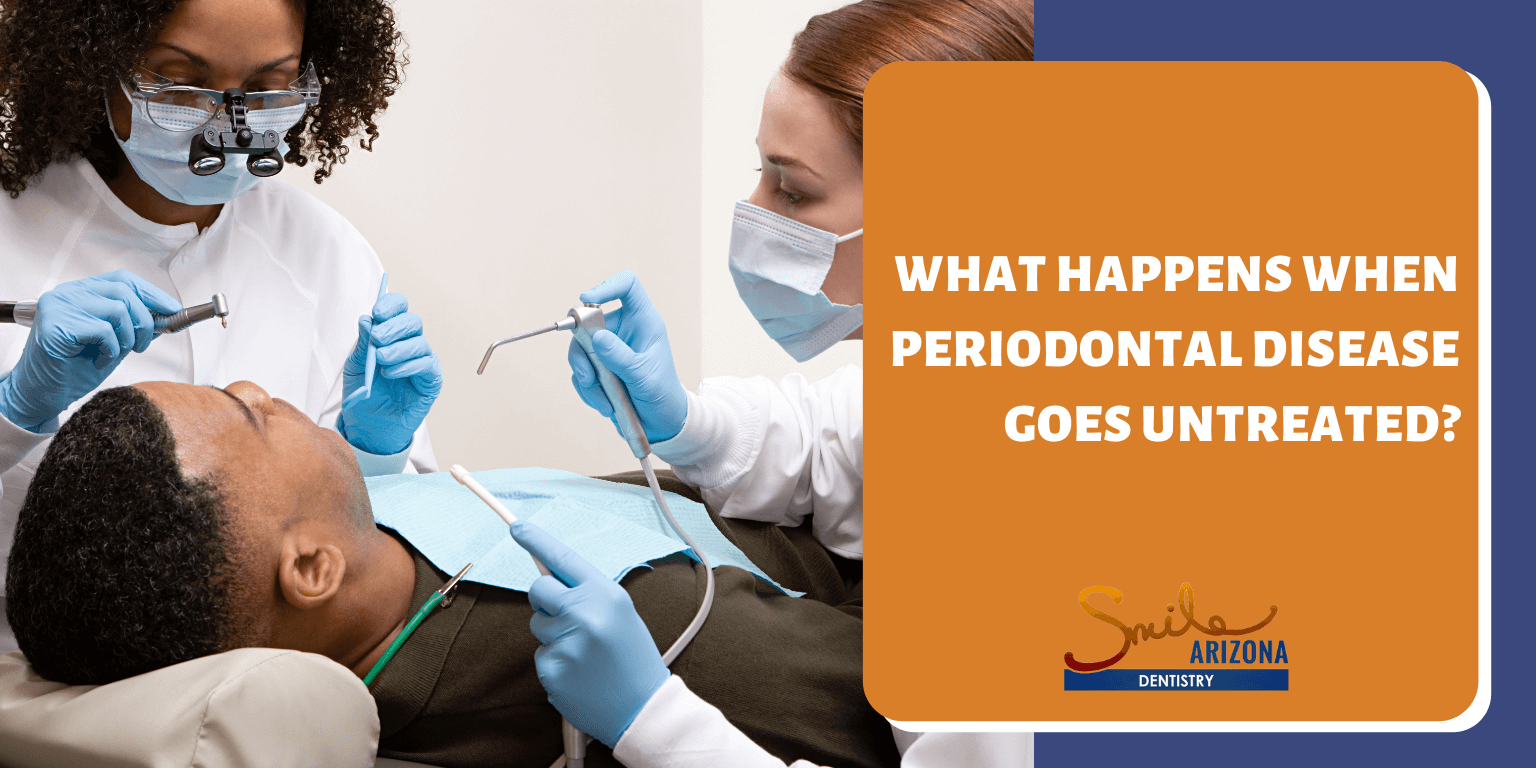


Periodontal disease is the infection and inflammation of the gums that damage the soft tissue at the center of the teeth. If left untreated, the condition can loosen teeth or lead to tooth loss. The Centers for Disease Control and Prevention (CDC) reveals that 47.2% of adults aged 30 or above and 70.1% of adults aged 65 or above have periodontal disease.
Periodontal disease, though common, is preventable with good oral hygiene and proper treatment. Regular dental checkups help detect periodontal disease before it impacts your oral health and reduce your chances of developing the disease.
The different types of periodontal disease include:
Gingivitis is the first stage of periodontal disease caused by plaque and tartar accumulation, which irritates the gums and makes them red and bleed. If left untreated, it can lead to periodontitis. However, it can be reversed with good oral hygiene and professional treatment.
Patients who are otherwise clinically healthy can experience a quick loss of gum attachment and bone destruction which commonly known as aggressive periodontitis.
This is the inflammation of the gums that damage the bone and tissues that support the teeth, resulting in shifting or loose teeth. It is the most common form of periodontal disease and is characterized by gum recession. This condition can affect people of all age groups but is most prevalent in adults.
This form of periodontal disease often begins at a young age and is triggered by medical conditions like heart disease, diabetes, and respiratory infections.
Commonly found in individuals suffering from systemic health conditions such as immunosuppression, HIV, and malnutrition, it is characterized by necrosis of alveolar bone, gingival tissues, and periodontal ligament.
Periodontal disease begins as simple gingivitis. The gum tissue might look red and swell, causing bad breath. However, if left untreated, it can lead to mild to moderate periodontal disease, characterized by infections and bleeding gums.
As periodontal disease progresses, tartar and bacteria invade deeper into the gum tissue, damaging the underlying bone and ligaments. This causes receding gums, bone damage, and eventually, tooth loss.
The effects of periodontitis can spread beyond your oral health. As bacteria and tartar continue to grow, they can enter your bloodstream and travel throughout your body causing other health problems such as arthritis, heart disease, stroke, and diabetes. It is critical to treat periodontal disease before it impacts your overall physical health.
These factors can increase your risk of developing gum disease:
Here are a few tips to prevent periodontal disease:
Brushing your teeth after meals helps remove plaque and food debris accumulated between your gums and teeth. Make sure to clean your tongue while brushing, as food particles and bacteria can stay there. Use a soft-bristled toothbrush.
Floss at least once a day to remove food particles and plaque between your gum and teeth.
Rinse your mouth with a mouthwash to keep it fresh and germ-free.
Avoid sugary foods and beverages as they can produce acids in your mouth. Avoid sticky foods that contribute to bacterial growth.
Know your risk factors and talk to your dentist about how you can control them. Generally, age, smoking, genetics, and poor diet can increase your risk of periodontal disease.
It is recommended that you visit your dentist at least twice a year. Don’t go longer than 6 months between check-ups. They will examine your teeth, gums, bone structure, and risk factors or symptoms of periodontal disease. Early diagnosis and treatment is the key to reverse gum disease and protect your oral health.
You don’t have to lose your teeth to periodontal disease. With proper care, you can make them last a lifetime. Our experienced dentists in Scottsdale will create a periodontal treatment and care plan to treat any of your oral health problems. Contact us today to schedule an appointment for your routine care and hygiene visit!
Share Your Valuable Thought
Your email address will not be published. Required fields are marked *